
The whole future lives in uncertainty: live immediately
– Seneca
Here is a list of books that are recommended. The ancient Stoics should be considered essential reading- as there is nothing like sitting with the original text and working through the material.
Secondary material (not the ancient sources) i will rank, if it is appropriate to do so, as ‘modern’ or ‘traditional’ and also give an indication of its level of difficulty.
Essential Reading-The Stoics
Epictetus: Discourses, Fragments, Handbook (Oxford World’s Classics) Robin Hard (translator), Christopher Gill (contributor)
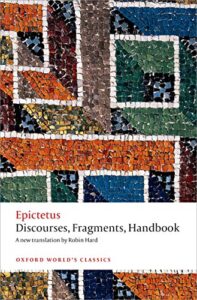
Epictetus’s Discourses have been the most widely read and influential of all writings of Stoic philosophy, from antiquity onwards. They set out the core ethical principles of Stoicism in a form designed to help people put them into practice and to use them as a basis for leading a good human life.
This is the only complete modern translation of the Discourses, together with the Handbook or manual of key themes, and surviving fragments. Robin Hard’s accurate and accessible translation is accompanied by Christopher Gill’s full introduction and comprehensive notes.
Marcus Aurelius: Meditations
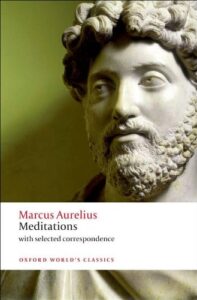
The Meditations of Marcus Aurelius (AD 121-180) is a private notebook of philosophical reflections, written by a Roman emperor probably on military campaign in Germany. In short, highly charged comments, Marcus draws on Stoic philosophy to confront challenges that he felt acutely, but which are also shared by all human beings – the looming presence of death, making sense of one’s social role and projects, the moral significance of the universe.
Seneca: Letters on Ethics Margaret Graver (translator), A. A. Long (translator)
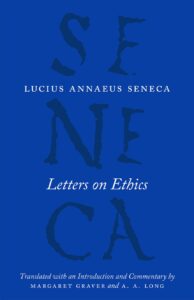
The Roman statesman and philosopher Seneca (4 BCE–65 CE) recorded his moral philosophy and reflections on life as a highly original kind of correspondence. Letters on Ethics includes vivid descriptions of town and country life in Nero’s Italy, discussions of poetry and oratory, and philosophical training for Seneca’s friend Lucilius. This volume, the first complete English translation in nearly a century, makes the Letters more accessible than ever before.
Other Reading- Ancient Commentators
Diogenes Laertius: Lives of the Eminent Philosophers
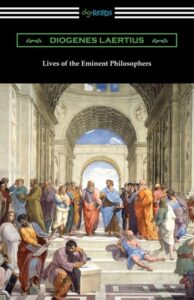
A pioneering work in the history of philosophy, the ancient text of the Lives presents engaging portraits of nearly a hundred Greek philosophers. It blends biography with bibliography and surveys of leading theories, peppered with punchy anecdotes, pithy maxims, and even snatches of poetry, much of it by the philosophers themselves. The work presents a systematic genealogy of Greek philosophy from its origins in the sixth century BCE to its flowering in Plato’s Academy and the Hellenistic schools. Book 7 examines the lives of the Stoics.
Arius Didymus: Epitome of Stoic Ethics
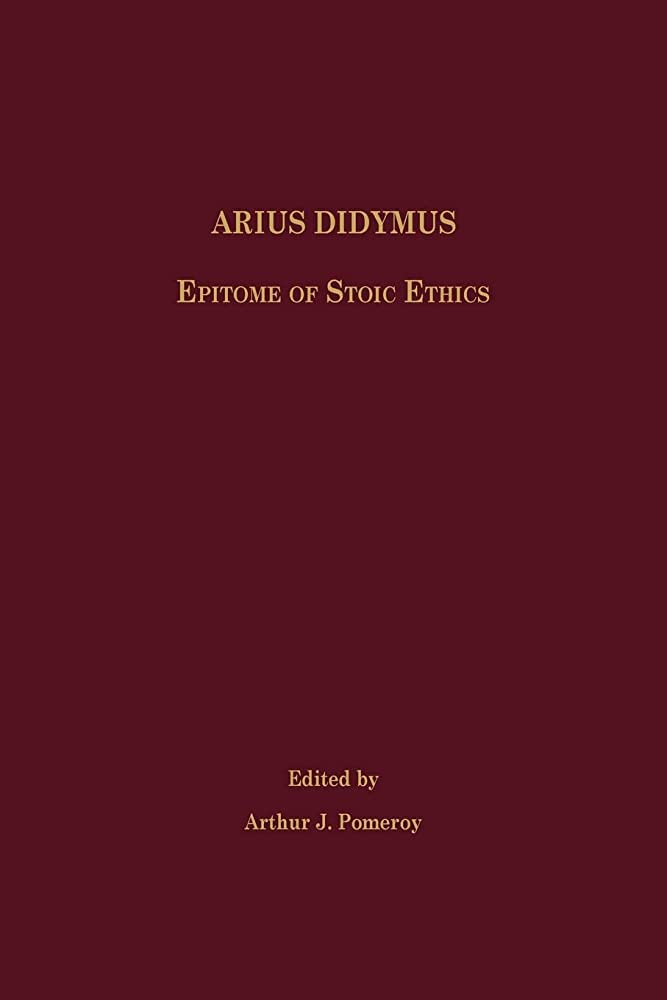
A work by a prominent Alexandrian philosopher, giving an individualistic example of Stoic thought as it existed in the late first century BC.
Cicero: On Ends
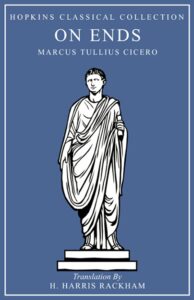
De finibus bonorum et malorum (“On the ends of good and evil”) is a Socratic dialogue by the Roman orator, politician, and Academic Skeptic philosopher Marcus Tullius Cicero. It consists of three dialogues, over five books, in which Cicero discusses the philosophical views of Epicureanism, Stoicism, and the Platonism of Antiochus of Ascalon which supports a hybrid system of Platonism, Aristotelianism (which he views as a single “Old Academy” tradition), and Stoicism. The treatise is structured so that each philosophical system is described in its own book, and then disputed in the following book (with exception of Antiochus’ view which is both explained and disputed in book five).
Secondary Reading
John Sellars: Stoicism
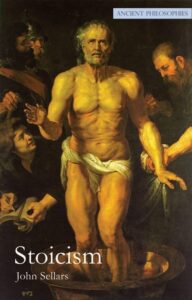
Essential/ Beginner
The perfect beginners guide to Stoicism- aims to introduce readers to the different ancient authors and sources that they will encounter when exploring Stoicism. This book begins by introducing the ancient Stoics and their works. It then considers how the Stoics themselves conceived philosophy and how they formulated their own philosophical system. The core chapters examine Stoic philosophical doctrines in depth, taking each division of Stoic theory in turn: logic, physics, and ethics. The final chapter provides a fascinating account of the Stoic legacy from later antiquity to the present. This book includes a glossary, chronology and guide to further reading, which, together with its accessible yet authoritative approach, make it an ideal introduction for students and general readers.
A. A. Long: Epictetus- A Stoic and Socratic Guide to Life
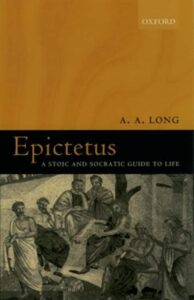
Intermediate
The philosophy of Epictetus, a freed slave in the Roman Empire, has been profoundly influential on Western thought: it offers not only stimulating ideas but practical guidance in living one’s life. A. A. Long, a leading scholar of later ancient philosophy, gives the definitive presentation of the thought of Epictetus for a broad readership. Long’s fresh and vivid translations of a selection of the best of Epictetus’ discourses show that his ideas are as valuable and striking today as they were amost two thousand years ago. The translations are organized thematically within the framework of an authoritative introduction and commentary, which offer a way into this world for those new to it, and illuminating interpretations for those who already know it. Epictetus is known as one of the great Stoic thinkers. But he took the life and conversation of Socrates as his educational model. His Socratic allegiance, scarcely examined before, is a major theme of this ground-breaking book. Long shows how Epictetus offered his students a way of life premised on the values of personal autonomy and integrity. Never a sermonizer, Epictetus engages his students in brilliantly challenging dialogue; Long offers the first accessible study of his argumentative and rhetorical methods.
Margaret Graver: Stoicism and Emotion
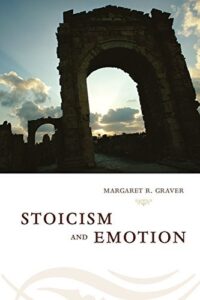
Intermediate
On the surface, stoicism and emotion seem like contradictory terms. Yet the Stoic philosophers of ancient Greece and Rome were deeply interested in the emotions, which they understood as complex judgments about what we regard as valuable in our surroundings. Stoicism and Emotion shows that they did not simply advocate an across-the-board suppression of feeling, as stoicism implies in today’s English, but instead conducted a searching examination of these powerful psychological responses, seeking to understand what attitude toward them expresses the deepest respect for human potential.
Martha Nussbaum: Therapy of Desire
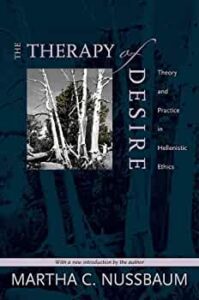
Intermediate
The Epicureans, Skeptics, and Stoics practiced philosophy not as a detached intellectual discipline, but as a worldly art of grappling with issues of daily and urgent human significance: the fear of death, love and sexuality, anger and aggression. Like medicine, philosophy to them was a rigorous science aimed both at understanding and at producing the flourishing of human life. In this engaging book, Martha Nussbaum examines texts of philosophers committed to a therapeutic paradigm–including Epicurus, Lucretius, Sextus Empiricus, Chrysippus, and Seneca–and recovers a valuable source for our moral and political thought of today.
Pierre Hadot: Philosophy as a Way of Life
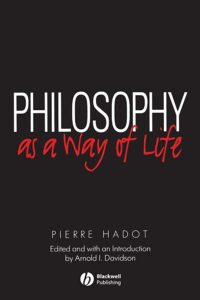
Intermediate
This book presents a history of spiritual exercises from Socrates to early Christianity, an account of their decline in modern philosophy, and a discussion of the different conceptions of philosophy that have accompanied the trajectory and fate of the theory and practice of spiritual exercises. Hadot’s book demonstrates the extent to which philosophy has been, and still is, above all else a way of seeing and of being in the world.
Susanne Bobzien: Determinism and Freedom in Stoic Philosophy
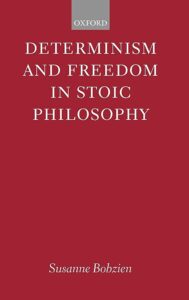
Advanced
Presenting one of the most important intellectual legacies of the ancient Greek world: the Stoic theory of causal determinism. She identifies the main problems that the Stoics addressed and reconstructs the theory. She discusses how the Stoics squared their determinism with their conceptions of possibility, action, freedom, and moral responsibility, and how they defended it against objections and criticism by other philosophers. She shows how the Stoics distinguished their causal determinism from ancient theories of logical determinism, fatalism, and necessitarianism. Along the way she gives an authoritative account of many other related aspects of Stoic thought, including their views on the predictability of the future, the role of empirical sciences, the determination of character, and moral freedom. Bobzien’s study of these central doctrines of Stoicism reveals the considerable philosophical richness and power that they retain today.
Samuel Sambursky: Physics of the Stoics
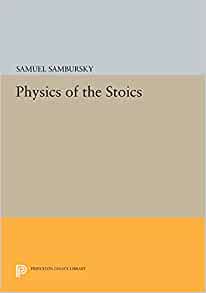
Stoic physics, based entirely on the continuum concept, is one of the great original contributions in the history of physical systems. Building on The Physical World of the Greeks, the author describes the main aspects of the Stoic continuum theory, traces its origins back to pre-Stoic science and philosophy, and shows the attempts of the Stoics to work out a coherent system of thought that would explain the essential phenomena of the physical world by a few basic assumptions.